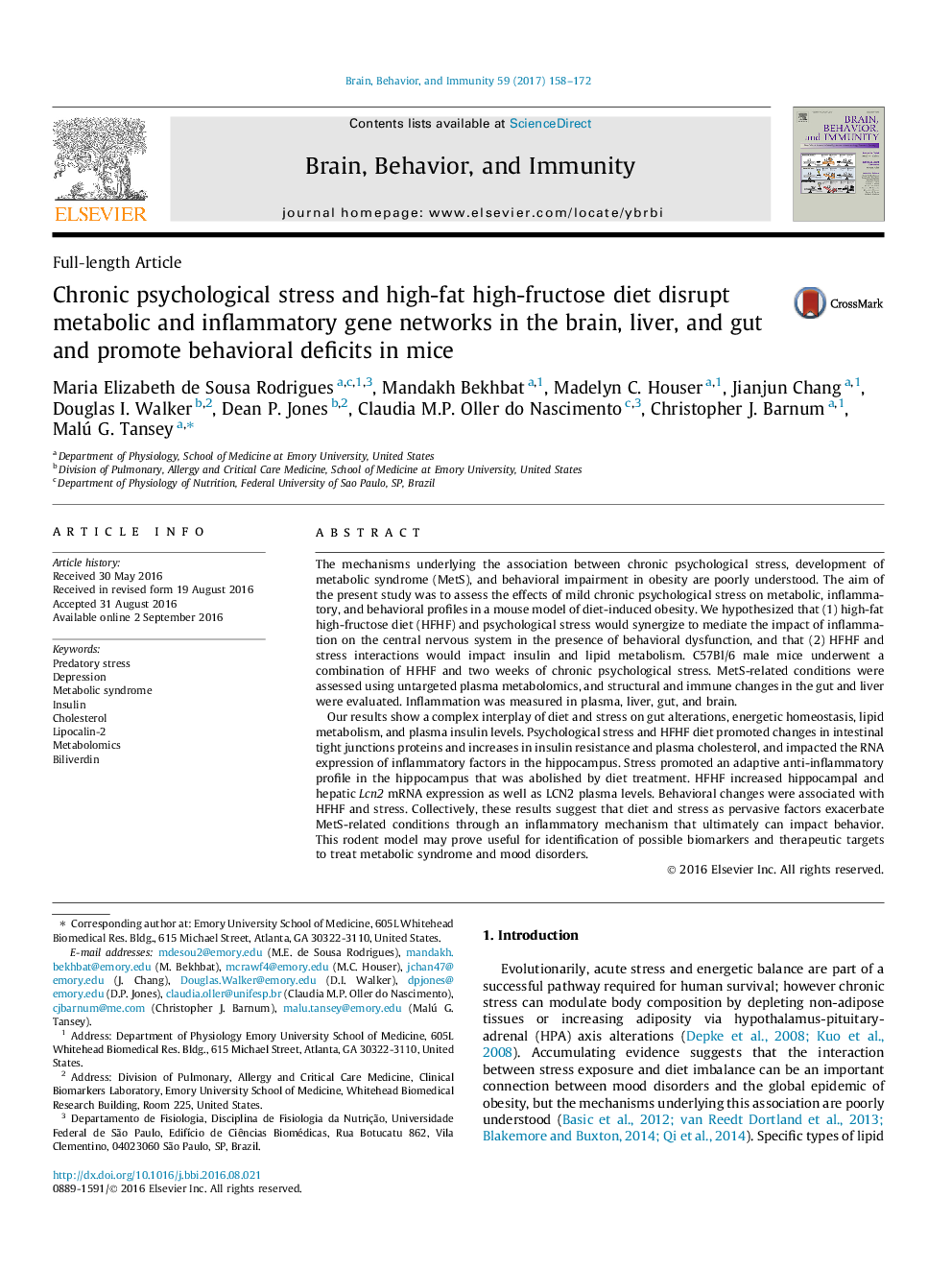| Article ID | Journal | Published Year | Pages | File Type |
|---|---|---|---|---|
| 5040936 | Brain, Behavior, and Immunity | 2017 | 15 Pages |
â¢Stress and HFHF diet alter adaptive immune responses in hippocampus and liver.â¢Stress and HFHF diet increase insulin and cholesterol plasma levels.â¢Lcn2 may play a key role in the systemic and hippocampal response in obesity.â¢Biliverdin is impacted by HFHF and stress in the context of insulin alterations.
The mechanisms underlying the association between chronic psychological stress, development of metabolic syndrome (MetS), and behavioral impairment in obesity are poorly understood. The aim of the present study was to assess the effects of mild chronic psychological stress on metabolic, inflammatory, and behavioral profiles in a mouse model of diet-induced obesity. We hypothesized that (1) high-fat high-fructose diet (HFHF) and psychological stress would synergize to mediate the impact of inflammation on the central nervous system in the presence of behavioral dysfunction, and that (2) HFHF and stress interactions would impact insulin and lipid metabolism. C57Bl/6 male mice underwent a combination of HFHF and two weeks of chronic psychological stress. MetS-related conditions were assessed using untargeted plasma metabolomics, and structural and immune changes in the gut and liver were evaluated. Inflammation was measured in plasma, liver, gut, and brain.Our results show a complex interplay of diet and stress on gut alterations, energetic homeostasis, lipid metabolism, and plasma insulin levels. Psychological stress and HFHF diet promoted changes in intestinal tight junctions proteins and increases in insulin resistance and plasma cholesterol, and impacted the RNA expression of inflammatory factors in the hippocampus. Stress promoted an adaptive anti-inflammatory profile in the hippocampus that was abolished by diet treatment. HFHF increased hippocampal and hepatic Lcn2 mRNA expression as well as LCN2 plasma levels. Behavioral changes were associated with HFHF and stress. Collectively, these results suggest that diet and stress as pervasive factors exacerbate MetS-related conditions through an inflammatory mechanism that ultimately can impact behavior. This rodent model may prove useful for identification of possible biomarkers and therapeutic targets to treat metabolic syndrome and mood disorders.
